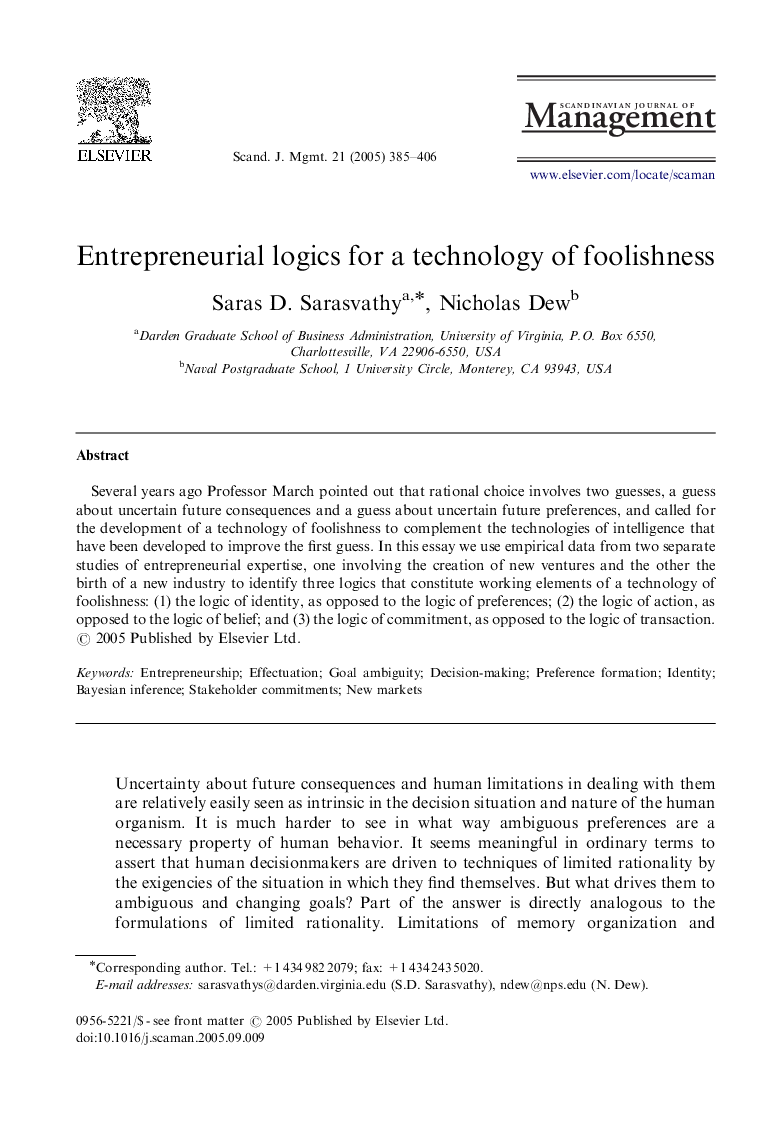| Article ID | Journal | Published Year | Pages | File Type |
|---|---|---|---|---|
| 9719600 | Scandinavian Journal of Management | 2005 | 22 Pages |
Abstract
Several years ago Professor March pointed out that rational choice involves two guesses, a guess about uncertain future consequences and a guess about uncertain future preferences, and called for the development of a technology of foolishness to complement the technologies of intelligence that have been developed to improve the first guess. In this essay we use empirical data from two separate studies of entrepreneurial expertise, one involving the creation of new ventures and the other the birth of a new industry to identify three logics that constitute working elements of a technology of foolishness: (1) the logic of identity, as opposed to the logic of preferences; (2) the logic of action, as opposed to the logic of belief; and (3) the logic of commitment, as opposed to the logic of transaction.
Related Topics
Social Sciences and Humanities
Business, Management and Accounting
Strategy and Management
Authors
Saras D. Sarasvathy, Nicholas Dew,
